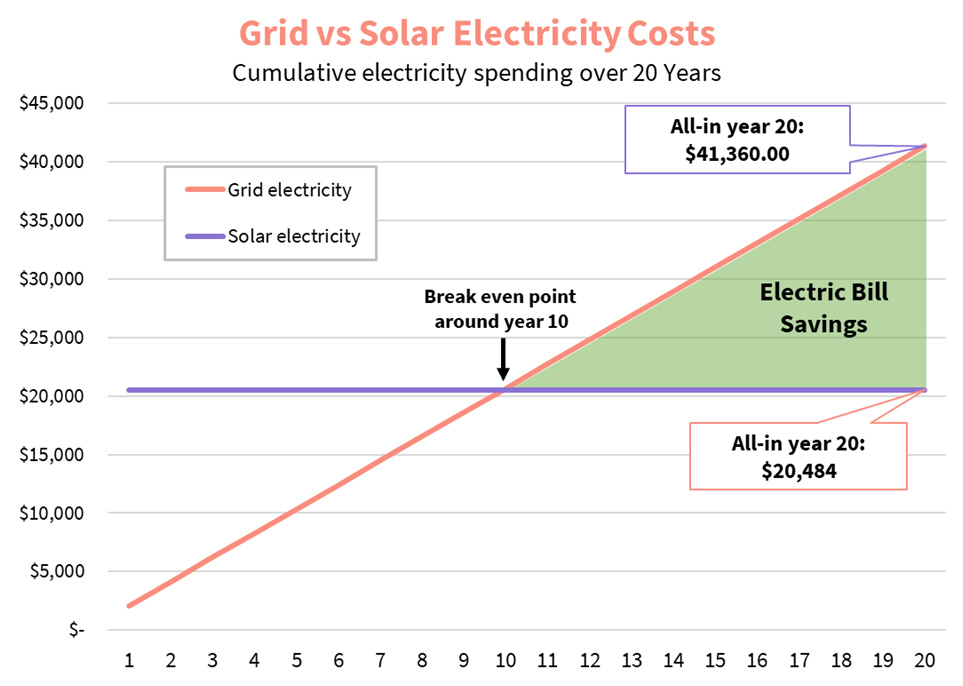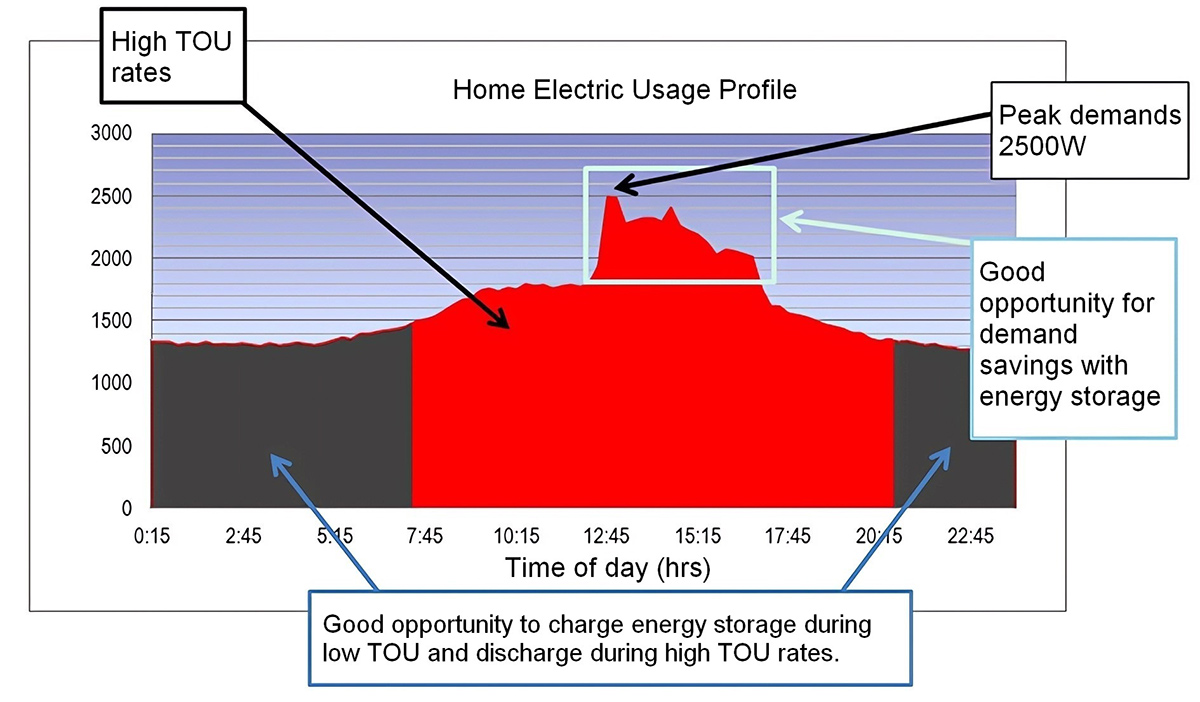The answer is Yes.
LiHUB energy energy can not only lower your electric bill — they can completely replace it.
Your electric bill depends primarily on two factors:
● How much electricity you use
● The rate at which the utility company charges for that electricity
If you're stuck on grid power, there's almost nothing you can do to lower your rate. But by using LiHUB energy storage, you can lower your monthly electric bill. The exact savings you will see with LiHUB energy storage depends on the following:
● Electricity consumption
● Solar energy system size
● Whether you purchase or lease your LiHUB energy storage system
● Direct hours of daily sunlight
● Size and angle of roof
● Local electricity rates.
Think of going LiHUB energy storage as replacing your electricity bill with monthly payments for your solar + energy storage equipment. For example, here's how a 10kWh LiHUB energy storage looks over 20 years of paying 8 cents/kWh for a cash solar purchase versus the national average 16.6 cents/kWh for grid energy.

How LiHUB energy storage saves money on your electric bill?
If free solar, or low-cost grid electricity is stored in LiHUB energy storage system, it can be used when power companies are charging the highest tariffs of the day. This typically occurs when the grid is experiencing peak demand. The following figure provides an example of an electric usage profile that has both demand charges and TOU rates. In this example, the customer would have opportunities to save on utility costs two ways; by shaving peak demand, and by charging/discharging for TOU savings.

Even in cases where energy storage will not necessarily result in utility bill savings, it may still make sense to move forward with an energy storage system to secure backup power capabilities. Systems that are configured with the LiHUB energy storage can "island" from the grid and stay energized during a power outage. Although this capability will not reduce utility bills, it has the potential to save money in other ways, including:
● Minimizing or eliminating food spoilage during grid outages
● Reducing equipment damage that can occur during outages
● Keeping lights on so that occupants do not have to leave the building
● Allowing study, or business functions to continue
● Energizing communication systems
Depending on the size of house and the frequency of power outages
Deploying LiHUB energy storage could result in a return on investment
Through avoided outage expenses